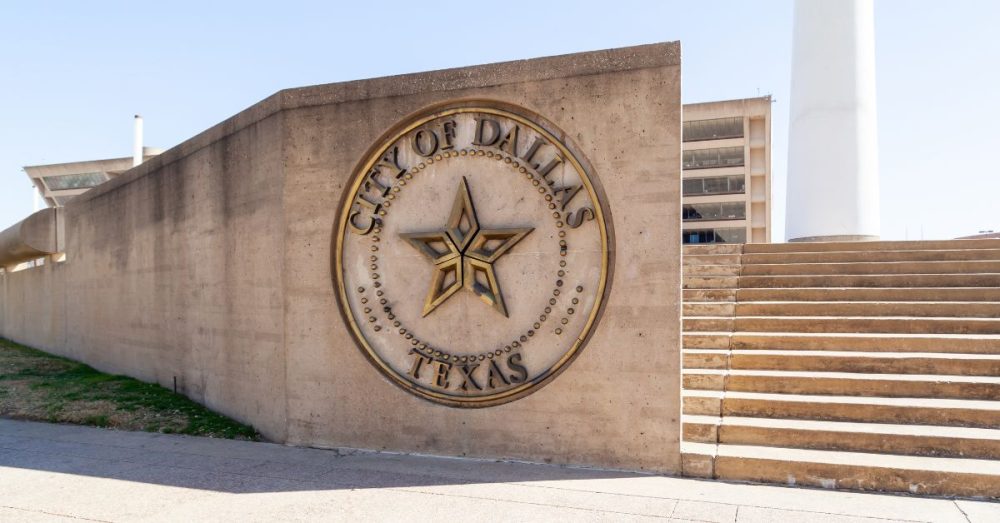The Texas Public Policy Foundation (TPPF) has put the City of Dallas on notice: repeal more than 130 local ordinances that violate state law, or face a lawsuit.
In a formal letter dated July 23, 2025, to Dallas City Attorney Tammy Palomino, TPPF said the city continues to enforce 133 ordinances that were preempted by House Bill 2127, also known as the Texas Regulatory Consistency Act or the “Death Star Bill.” The law took effect on September 1, 2023, and forbids cities from regulating in areas already governed by the state — including labor, insurance, finance, business, and property codes.
TPPF’s legal action is on behalf of three Dallas taxpayers who allege they’ve been harmed by the city’s illegal enforcement of preempted ordinances. The foundation warned that it will pursue injunctive and declaratory relief under Texas Civil Practice and Remedies Code § 102A.003 if the city fails to comply.
The ordinances in question affect everyday residents and small businesses by imposing extra fees, permits, and local restrictions on things already governed by state law — such as alarm systems, food trucks, towing services, housing rules, labor mandates, and even animal ownership. TPPF argues that enforcing these duplicative rules not only violates the law but also burdens taxpayers and entrepreneurs with unnecessary red tape and costs.
“The Texas Regulatory Consistency Act was passed to stop exactly this kind of local overreach — and TPPF stands ready to defend Texans’ liberty when cities like Dallas refuse to follow the law,” said Matthew Chiarizio, TPPF senior attorney.
The list of invalid ordinances comes from a memorandum drafted by the City of Dallas itself in April 2023. That memo, sent to Rep. Rafael Anchia (D–Dallas), acknowledged the city’s own ordinances would be preempted if HB 2127 became law. The law did — yet the ordinances remain on the books and are still being enforced.
“Wasteful and illegal spending like what is in these ordinances flushes millions of dollars of Dallas taxpayers’ money down the drain,” added TPPF attorney Nathan Seltzer.
The ordinances in question cover a wide range of policy areas, including anti-discrimination mandates, labor and wage rules, alarm permits, trash collection, tow truck licensing, solid waste fees, the regulation of sexually oriented businesses, and even the regulation of roosters.
Dallas HERO Piles On
The citizen-led watchdog group Dallas HERO, a frequent critic of mismanagement at City Hall, said the city’s failure to repeal ordinances preempted by state law reflects broader dysfunction.
In response to a request for comment, Dallas HERO Executive Director Damien LeVeck sent The Dallas Express the following statement, originally posted to the group’s official X account:
“Add this to the laundry list of ways Dallas is mismanaged. When you understand how broken the government is from the inside, it’s unsurprising seeing the external consequences in the form of crime and homelessness plaguing the streets.”
Abbott: A “New Hope” for Texas Business
When HB 2127 was signed into law in June 2023, Gov. Greg Abbott called it a turning point for small business owners:
“Texas is the economic envy of America. Today, I signed a law to provide a new hope to Texas businesses struggling under burdensome local regulations.”
As previously reported by The Dallas Express, the law prohibits municipalities from issuing rules that contradict state law across major regulatory fields, including the Agriculture Code, Business and Commerce Code, Finance Code, Insurance Code, Labor Code, Natural Resources Code, Occupations Code, and Property Code.
The bill’s author, Rep. Dustin Burrows (R–Lubbock), said the goal was to prevent a “patchwork” of conflicting and overreaching city mandates. Sen. Brandon Creighton (R–Conroe), who carried the bill in the Senate, called it “the most pro-business, pro-growth bill” of the legislative session.
A range of business groups, including the Texas Restaurant Association, Texas Association of Business, and National Federation of Independent Business, all praised the bill’s passage for bringing “regulatory consistency” and reducing uncertainty for entrepreneurs.
Despite bipartisan support and the city’s own legal admissions, Dallas appears to be in continued defiance of state law.
If the city does not repeal the ordinances voluntarily, TPPF says it is prepared to take them to court.


